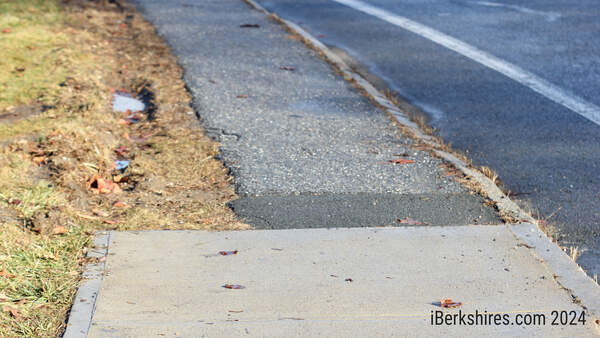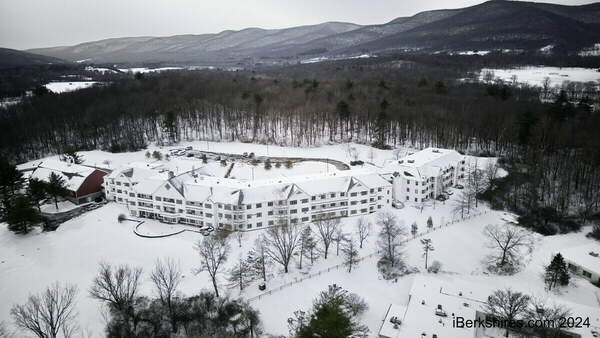
Williamstown Drinking Water Predicted to be Unaffected by Biomass Plant
 William Bousquet, managing director of engineering for Beaver Wood Energy, was questioned by an unfriendly crowd regarding his involvement in previous environmental violations. |
The state will oversee pumping tests as early as January as part of the permitting for Beaver Wood Energy's biomass plant at the former Green Mountain Race Track on Route 7. The data collected will be able to determine how much of the plant's water usage will take away from residents' drinking water.
The state predicts minimal effect near the site and no effect at all over the border in Williamstown, Mass.
"I think it won't affect anybody in Mass. It's just a little too far," Dennis Nealon, hydrologist with the Agency of Natural Resources, said after a lengthy public hearing at the Pownal Elementary School on Wednesday. "I think maybe wells 4,000 feet out could be affected."
The data can be analyzed into distances to determine if any Massachusetts wells will see declining levels, he said.
The test will include monitoring personal, shared and newly drilled test wells in a 3,000-foot radius of the site, said Meddie Perry, a hydrogeologist with Vanasse Hangen Brustlin Inc., the firm hired as a consultant by Beaver Wood Energy. The agency will then monitor the wells as the well at the site pumps 465 gallons a minute for seven days. Finally, the group will watch the wells recover.
Nealon told a crowd of about 100 that he is in charge of overseeing the drinking water tests and does not have the authority to deny the permit if the company meets all state statutes. However, public comments can be submitted until Jan. 15 that can influence the language of the permit to address local issues. The company will be forced to stop pumping in case of a drought or emergency, Nealon said.
"A lot of people have said 'please deny the permit,' " Nealon said. "The statutes really hone in on drinking water."
Despite the state's confidence, residents complained that the tests are being done in the wet season and cannot predict the hot days when the company will be using the well water instead of the river. Others complained that a week is not enough time to judge what will happen to the wells and pleaded for a longer test.
"We are confident that seven days will be more than enough but we are open to extending that," Perry said.
Defending the timing of the study, Perry said the winter months provide adequate assessments that can be predicted out yearlong. The crowd also questioned the state's authority to regulate the plant and Beaver Wood's honesty. Many citizens did not expect Beaver Wood representatives to be honest when they provide samples and test results to the state.
"We're professionals. We'll make sure we don't break any permits. If your wells do run dry, I'm sure we'll all know about it," William Bousquet, managing director of engineering for Beaver Wood, said. "If we do have a violation then we'll have to take care of it. But that won't happen."
Bousquet was forced to justify his history when audience members asked about one of Beaver Wood's predecessors being cited for multiple violations. Bousquet said the violations were all after he had left the company. He was only involved in one violation issue, he said, and it resulted when a new plant began receiving too-moist tree bark.
The crowd often went off-topic and wanted answers to questions unrelated to drinking water, including air pollution and discharge, for which Nealon is not responsible. Other members of the Agency of Natural Resources are responsible for those testing and permits, he said.
"This is a big deal. It's a lot of money. This is a big deal for our lives," said James Winchester, a local businessman who has a long history with the track. "We don't dislike you. We just don't know you."















